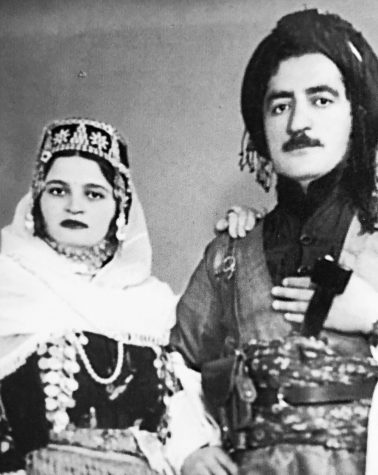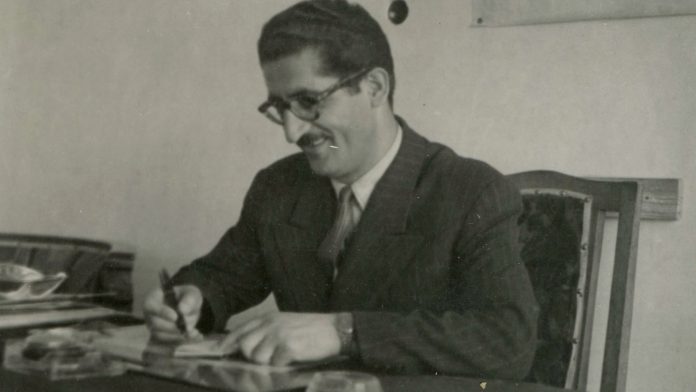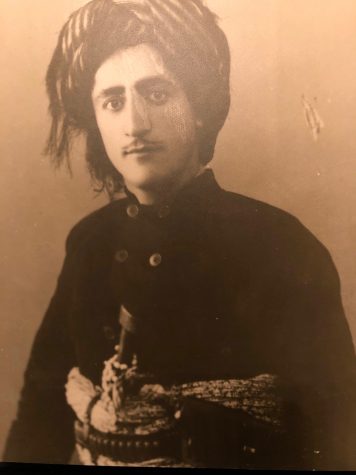| This article originally appeared in Washington Square News. It felt startlingly pertinent when, last week, the 2018 Nobel Peace Prize was awarded to two activists who have devoted their careers to the epidemics of sexual violence in their respective homelands. The prize was awarded to 63-year-old Dr. Denis Mukwege, a Congolese gynecological surgeon who has dedicated his practice to the treatment of victims of sexual violence in the Democratic Republic of the Congo. The award was also given to a survivor — 25-year-old Nadia Murad is a Yazidi-Kurdish survivor of genocidal rape by the Islamic State in northern Iraq. The Yazidis, a religious minority within the Kurdish community, and the Kurds as an entire ethnic group within the Middle East, have been systematically targeted and persecuted by the ruthless forces of ISIS. When Murad escaped from captivity following the murder of her mother and six of her brothers, she endeavored to bring her cause to the forefront of the international conversation. With the help of representation from renowned human rights lawyer Amal Clooney, who has served as an advocate of the Yazidi cause, Murad appealed to the United Nations and undertook an advocacy campaign with the goal of convincing the United States State Department of recognizing the existence of the ongoing genocide. The Kurds, as a cultural community, have not only been singled out and targeted by the Islamic State but have organized, struggled and defended the Middle East to protect both their homeland and the region in its entirety — and to this day, they endure as a culture with little international recognition or support, while denied the rights of self-determination and statehood. 
As a Kurdish-Iranian-American, I've developed a nuanced perspective on my cultural background and identities. Being Kurdish meant possessing a somewhat contrived, but wholly unique, notion of the term "identity." The Kurdish people, despite the richness and depth of their ancient culture, are members of a stateless nation — in essence, they do not actually occupy a designated homeland. The Kurds, as of now, encompass something more akin to a region — an area of mountainous, landlocked territory at the intersection of Iran, Iraq, Syria and Turkey. But the culture is known for its pride and celebration of heritage — the Kurdish language, anthem, flag and tolerance for other religions and cultures are completely distinct from their surrounding nations and cultures. Numbering at approximately 35 million, the Kurds are the fourth largest ethnic group in the Middle East and the largest indigenous population in the world without a country. An old Kurdish adage proclaims that the Kurds "have no friends but the mountains" — a haunting reflection when one considers that during Saddam Hussein's reign of terror in Iraq, many Kurds fled to the mountains to fight against his genocidal persecution and the murder of an estimated 100,000 Kurds by the use of mustard gas in the 1988 Halabja Massacre and al-Anfal campaign against the Kurdish population. This genocidal atrocity which involved the largest chemical weapons attack against a civilian-populated area in international history was not all that long ago. Not only do we, as students and teachers in classrooms at a prestigious university, fail to commonly acknowledge this, but we seem to stand by, unaware as the Kurds are assailed again two decades later. As a child, I knew the basics of my family history: my grandfather was a freedom fighter, an Iranian Kurd who spent much of his youth as a prisoner of conscience due to his protest against the Iranian monarchy and his pursuit of fundamental human rights for the Kurdish people. Most of the men — and many of the women — in my father's family were at some point imprisoned and subjected to torture in Iran's most notorious political and ideological prisons.  Hanna's grandfather, Ali Khosravi, was the Director General of the Youth of the short-lived Kurdish Republic of 1946. (Photos courtesy Hanna Khosravi) But this desire for freedom, which has become characteristic of the Kurdish identity, has never faltered. Now more than ever, change comes our way as the world has witnessed the brave Kurdish men and women so valiantly facing down ISIS. As of the last few years, the Kurdish Peshmerga forces — the name of the Kurdish army, which translates to "those who face death" — have dedicated their lives to eliminating the threat of ISIS. Murad's recent Nobel Prize brings further illumination to the understanding of the force and courage of women in Kurdish society. An estimated 35 percent of the military in Kurdistan is made up of women — that is the largest percentage of female fighters in any military in the world. In 2012, the Kurdish Democratic Union Party legally mandated that formal elections and government offices must include women. In fact, the autonomous Kurdish region in Northern Iraq, known as the Kurdish Regional Government, actually has a higher percentage of women in government roles than in the U.S. or the United Kingdom. Most Westerners associate the Middle East with governmental jurisdiction against women and regrettably, in the 21st century, this is not an altogether incorrect assumption. But Kurdish ideals have long proved different in terms of religious, ethnic and gender equality. Not only do female fighters occupy commanding combat roles in the military, but they have also been able to use their gender to advantage in an ideological intimidation of ISIS. "ISIS sees female Peshmerga as a specific threat and danger," Newsweek reporter Simon Ross Valentine writes. "They believe, if they are killed by a woman, they will be denied the rewards of paradise." The haphazard establishment of borders post-World War II in the Sykes-Picot Agreement resulted in the practical impossibility of Kurdish sovereignty, as the Middle East was unevenly divided up into satellite territories at the whim of Western powers, and the Kurdish population was left quartered within various nations. But time and time again, the Kurds, a mostly Sunni Muslim population, have proven to be allies of the West. They have defended the Yazidi sector of Mt. Sinjarfrom ISIS, and they have provided a safe haven for Iraqi refugees and Christian, Jewish, and other religious minorities. Their secular and democratic governing mentality in the face of the mostly autocratic, religiously fundamentalist governments in the Middle East have established them as a stabilizing force. While the U.S. has benefited from this alliance with the Kurds, their support has consistently fallen short of Kurdish aspirations for independence. 
What is happening in the Middle East is not part of an irrelevant history. As Nadia Murad's Nobel Prize shows, the persecution of the Kurdish people in the Middle East and their valiance in the fight against ISIS is occurring right now. And in a year when the sexual violence, discrimination, and subjugation of women has taken center stage in American political and social dynamics, Murad's award should serve as a reminder for us to take a deeper look at a people seemingly left behind by the international community. The bravery and sacrifice of the Kurdish women, and Kurdish population, in confronting sexual assault and cultural violence underscore not just their bravery, but their usually liberal ideals in the face of despotism. We must recognize that the Kurdish people deserve significantly more support and attention, instead of being used, time and time again, solely as tactical partners in war and conflict. Opinions expressed on the editorial pages are not necessarily those of WSN, and our publication of opinions is not an endorsement of them. A version of this article appeared in the Tuesday, Oct. 9 print edition. Email Hanna Khosravi at hkhosravi@nyunews.com
This article was originally published in Washington Square News. The post Recognizing the Bravery of Kurdistan's Women appeared first on The Kurdish Project. |
Leave a Comment